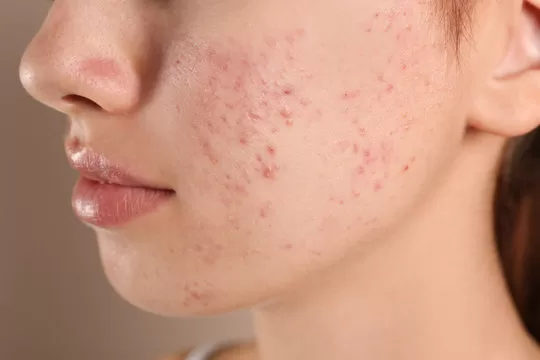A succulent plant, Aloe vera, is a member of the Aloe genus. It was first grown on the Arabian Peninsula, but now it is grown everywhere in warm weather. The plant has thick, fleshy leaves that are long and pointed with serrated edges. Inside the leaves is a clear, gel-like substance that is commonly used for its medicinal and cosmetic properties.
Aloe vera is commonly found in countries such as Mexico, India, and the United States, as well as in many parts of Africa and the Middle East. It is also grown commercially in many other parts of the world, including Australia, China, and South Africa. The plant can grow in a variety of soil types and climates, but it requires warm temperatures and plenty of sunlight to thrive.
Why Aloe vera plant is known as the “friend of humans”
Aloe vera is often referred to as “the friend of humans” due to its many beneficial properties and uses. The gel inside aloe vera leaves is full of vitamins, minerals, enzymes, and antioxidants, all of which can help with your health and appearance in different ways.

Here are some of the reasons why aloe vera is considered a friend of humans:
- It has anti-inflammatory properties. Aloe vera gel has compounds that can help reduce inflammation in the body. This makes it a good treatment for conditions like arthritis, asthma, and digestive problems.
- It is soothing for the skin: Aloe vera gel can help moisturize and soothe the skin, making it a popular ingredient in skincare products. It can also help heal minor burns and cuts.
- It can boost the immune system: Some studies suggest that aloe vera can help boost the immune system, which can help protect the body against illness and disease.
- It can aid in digestion: Aloe vera gel can help promote healthy digestion and relieve digestive issues such as constipation and acid reflux.
- It can promote healthy hair: Aloe vera gel can help nourish and strengthen hair, making it a popular ingredient in hair care products.
Overall, the many beneficial properties of aloe vera make it a versatile and useful plant that can help improve human health and well-being in a variety of ways.
What Ayurveda Says about Aloe Vera
According to Ayurveda, the ancient Indian system of medicine, aloe vera has been used for thousands of years for its medicinal properties. In Ayurveda, aloe vera is called “kumari,” which means “young girl,” because it helps people stay young and healthy.
One of the key benefits of aloe vera, according to Ayurveda, is its ability to balance all three doshas—vata, pitta, and kapha—which are the three fundamental energies that govern the human body. People say that aloe vera is especially good at balancing pitta dosha, which is related to heat, inflammation, and acidity.
In Ayurveda, aloe vera is also known for its ability to cleanse the body and help with digestion. It is said to be a powerful “rasayana,” or rejuvenating tonic, that can help promote overall health and well-being. Aloe vera can help balance the digestive fire, or “agni,” and improve the absorption of nutrients.
In addition, aloe vera is considered a natural antibiotic in Ayurveda and is used to treat a variety of infections and skin conditions. It is especially good at treating skin irritations and burns because it can cool and calm the skin.
Ayurveda also recognizes the benefits of aloe vera for women’s health. It is said to be particularly effective in treating menstrual disorders as well as promoting fertility and healthy pregnancy. Aloe vera can help balance the hormonal system and support healthy reproductive function.
Another key benefit of aloe vera in Ayurveda is its ability to support healthy immune function. Aloe vera is said to be a powerful immune booster and can help the body resist infections and disease.
Finally, aloe vera is used in Ayurveda for its anti-inflammatory properties. It is said to be particularly effective in treating inflammatory conditions such as arthritis as well as reducing inflammation in the gut and improving digestive function.
Aloe vera is a very important plant in Ayurveda because it has many health benefits. Its ability to balance the doshas, support digestion, promote healthy immune function, and reduce inflammation makes it a useful herb for promoting overall health and well-being.
Modern Applications of Aloe Vera’s Healing Properties
Reduces Blood Pressure
Recent studies have suggested that aloe vera gel powder may also help lower blood pressure.
One study published in the Journal of Dietary Supplements found that taking aloe vera gel powder for 8 weeks significantly lowered both systolic and diastolic blood pressure in overweight and obese adults. In another study, patients with type 2 diabetes who took aloe vera gel powder for 12 weeks had lower systolic and diastolic blood pressure. This study was published in the International Journal of Clinical and Experimental Medicine.
The mechanisms behind how aloe vera gel powder may help lower blood pressure are not entirely clear, but they are thought to be related to its anti-inflammatory properties. Chronic inflammation is thought to play a big role in the development of high blood pressure, and aloe vera has been shown in many studies to reduce inflammation.
Aloe vera gel powder is also rich in antioxidants, which can help prevent damage to blood vessels and improve overall cardiovascular health. In addition, aloe vera contains compounds called polysaccharides, which have been shown to have blood sugar-lowering effects and may help reduce the risk of developing diabetes, a significant risk factor for hypertension.
Helps in lowering Blood Sugar
Aloe vera has chemicals in it like glucomannan, lectins, and polysaccharides that may help keep blood sugar levels stable. Recent studies have shown that aloe vera may have a positive impact on blood sugar levels, making it a potential natural remedy for diabetes. Glucomannan is a dietary fiber that can slow down the absorption of glucose into the bloodstream, preventing blood sugar spikes.
Lectins are proteins that can help reduce insulin resistance, which is a common problem in people with type 2 diabetes. Polysaccharides are complex carbohydrates that can make the body make more insulin, which helps control how much sugar is in the blood.
In a study conducted on rats, aloe vera was found to reduce blood glucose levels by up to 46%. Another study found that aloe vera gel can improve insulin sensitivity in people with type 2 diabetes. Aloe vera has also been shown to reduce cholesterol levels, which is important for people with diabetes as they are at an increased risk of developing heart disease.
Aloe vera can be consumed in various forms, including as a juice or supplement. It is important to note that aloe vera may interact with certain medications, so it is recommended to consult a healthcare provider before adding it to your diet.
May Stimulate Collagen Production and Fight Skin Aging
Aloe vera has been used in traditional medicine for hundreds of years because it has a lot of healing properties. In recent years, it has become more popular in the beauty industry because it can help make collagen and fight the signs of aging.
Collagen is a protein that provides structure and elasticity to the skin, and it naturally declines as we age. Because of this, the skin gets thinner, drier, and more prone to fine lines and wrinkles. However, research suggests that aloe vera may help to counteract this process.
Aloe vera has many bioactive compounds, like polysaccharides, which have been shown to increase the production of collagen. These compounds can penetrate the skin’s outer layer and reach the deeper layers where collagen is produced, promoting the growth of new collagen fibers.
In addition to its collagen-boosting properties, aloe vera also has antioxidant and anti-inflammatory effects. Oxidative stress and inflammation can contribute to skin aging, so these properties may help to protect the skin from damage and delay the onset of wrinkles and fine lines.
Furthermore, aloe vera is rich in vitamins and minerals that are essential for healthy skin, such as vitamin E, vitamin C, and zinc. These nutrients can help to hydrate the skin, improve its texture and tone, and promote overall skin health.
Treats Acne and Pimples

One of the many benefits of aloe vera is its ability to help get rid of acne naturally. Acne is a common skin condition that affects many people, and it can be frustrating to deal with. However, with the use of aloe vera, you may be able to improve the appearance of your skin.
Aloe vera contains compounds that have anti-inflammatory and antibacterial properties, which can help reduce inflammation and kill the bacteria that cause acne and pimples. It also contains salicylic acid, which is a common ingredient in many acne treatments. Salicylic acid helps the skin shed dead cells and clear out clogged pores, which can stop acne from forming.
Aloe vera has chemicals in it that help reduce inflammation and kill bacteria, which can help get rid of acne-causing bacteria and reduce inflammation. a gentle and natural alternative. It can also help reduce the redness and swelling associated with acne.
To use aloe vera for acne, you can apply the gel directly to the affected area. You can either use fresh aloe vera from the plant or purchase aloe vera gel from a store. Apply a thin layer of the gel to your skin and leave it on for 10–15 minutes before rinsing it off with warm water. You can also leave it on overnight and rinse it off in the morning.
While aloe vera may help get rid of acne and pimples naturally, it is important to note that it may not work for everyone. If your acne is severe or doesn’t go away, you should talk to a dermatologist to figure out the best way to treat it. To stop acne from happening in the first place, it’s also important to keep up a healthy skincare routine and make changes to your lifestyle, like eating well and dealing with stress.
Aloe Vera in Mouthwash may aid in Dental Health
Aloe vera is a succulent plant species that has been used for its medicinal properties for thousands of years. The plant is known for its ability to soothe burns and other skin conditions, but it also has many other health benefits, including improving dental health when used in mouthwash.
Studies have shown that aloe vera can be effective in reducing plaque and gingivitis, two common dental problems that can lead to more serious issues like periodontal disease. A 2014 study published in the Journal of the Indian Society of Periodontology found that aloe vera mouthwash was more effective than chlorhexidine mouthwash, a commonly used antiseptic mouthwash, in reducing plaque and gingivitis.
Aloe vera has natural antibacterial and anti-inflammatory properties that can help kill harmful bacteria in the mouth and reduce gum inflammation. The plant also contains vitamins and minerals that can help strengthen teeth and gums.
To use aloe vera as a mouthwash, simply mix a small amount of aloe vera gel with water and swish it around in your mouth for a few minutes. You can also add a drop of peppermint oil or another essential oil for flavor.
In addition to using aloe vera mouthwash, it is important to maintain good dental hygiene by brushing twice a day, flossing often, and going to the dentist for checkups and cleanings. By incorporating aloe vera mouthwash into your routine, you can help improve your overall dental health and prevent more serious dental problems in the future.
Aloe Vera Is helpful for soothing Sunburn Inflammation
Aloe vera gel is a natural substance that is derived from the leaves of the aloe vera plant. It has been used for thousands of years for its medicinal properties and is known for its ability to soothe and heal a variety of skin conditions. One of the most popular uses of aloe vera gel is for the treatment of sunburn.
Sunburn is a common condition that occurs when the skin is exposed to too much UV radiation from the sun. It can cause redness, pain, swelling, and blistering and can be quite uncomfortable. Aloe vera gel is often suggested as a natural way to treat sunburn because it has anti-inflammatory properties that can help reduce the pain and redness that come with sunburn.
When applied to the skin, aloe vera gel forms a protective layer that helps to retain moisture and prevent further damage to the skin. It also contains antioxidants that can help protect the skin from further UV damage. In addition, aloe vera gel is rich in vitamins and minerals that can help promote skin healing and regeneration.
To use aloe vera gel for sunburn skin issues, simply apply a thin layer to the affected area as often as needed. It can be applied directly to the skin or mixed with other natural ingredients, like coconut oil or lavender essential oil, for added soothing benefits.
In conclusion, aloe vera gel is a popular natural treatment for sunburn inflammation because it reduces swelling and helps the skin heal and grow back. It is easy to use and readily available in most drugstores and health food stores. If you have a sunburn, consider trying aloe vera gel to help soothe and heal your skin.
What are the side effects of using Aloe vera?
While aloe vera gel is generally safe for topical use, there are some potential side effects that users should be aware of.
Skin Irritation:
In some cases, aloe vera gel may cause skin irritation or allergic reactions. This is more likely to occur in individuals with sensitive skin or those who are allergic to plants in the Liliaceae family, such as onions or garlic.
Stomach Pain:
If you drink a lot of aloe vera juice or take aloe vera supplements, you might get stomach pain like cramps, diarrhea, or nausea. This is due to the laxative properties of aloe vera, which can cause the intestines to contract.
Blood sugar level:
Aloe vera may lower blood sugar levels, which can be a problem for people with diabetes or those taking medication to lower their blood sugar levels. It is important to consult a doctor before using aloe vera if you have diabetes or are taking medication for it.
Drug Interactions:
Aloe vera may interact with certain medications, including diuretics and drugs used to treat diabetes, high blood pressure, and heart disease. It is important to consult a doctor before using aloe vera if you are taking any medication.
Pregnancy:
Aloe vera is not recommended for use during pregnancy or breastfeeding. It may cause uterine contractions and should be avoided.
Even though aloe vera is generally safe to use topically, people who drink aloe vera juice or take aloe vera supplements should be aware of possible side effects. Before using aloe vera, you should talk to a doctor, especially if you already have a health problem or are taking medicine.

Concussion
Aloe vera has been used for thousands of years for its medicinal properties and is known for its ability to soothe and heal a variety of skin conditions. Aloe vera gel is often suggested as a natural way to treat sunburn because it has anti-inflammatory properties that can help reduce the pain and redness that are associated with it.
In addition, aloe vera is good for your skin, but it may also be good for your health if you eat it. It may help reduce inflammation, aid digestion, lower blood sugar levels, and improve skin health. It could also cause skin irritation, stomach pain, and interactions with other medicines. It is recommended that you consult a doctor before using Aloe vera, and discuss if you have any pre-existing medical conditions or are taking medication. Overall, aloe vera can be a good natural cure for some health problems, but it should only be used with care and under the supervision of a doctor.
Disclaimer:
The author’s views are his or her own. The facts and opinions in the article have been taken from various articles and commentaries available in the online media and Eastside Writers does not take any responsibility or obligation for them.
Note: Contact our Writers at www.eastsidewriters.com for writing Blogs/Articles on any niche. We have experts in various domains from Technology to Finance and from Spirituality to Lifestyle and Entertainment.






